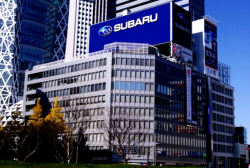
— When Volkswagen got caught cheating on emissions tests, regulators and investigators across the globe left their seats to take a close look at the emission systems of multiple automakers, causing a chain reaction of exposed failures.
That same line of reasoning has affected Subaru, although in a way not related to emissions systems.
Just a few short weeks ago, Nissan was caught falsifying documents related to final vehicle inspections before sold to the public.
The Japanese Ministry of Land, Infrastructure and Transport determined Nissan sold vehicles illegally because uncertified inspectors were used for final inspections.
This is a problem because regulations require a certified technician to put a stamp of approval on documents used to indicate Nissan vehicles have passed final inspections before the vehicles are legal to sell.
Japanese officials found that five of six Nissan plants allegedly falsified documents since 2014, causing Nissan to order a recall of 1.16 million vehicles in Japan built between January 2014 and September 2017.
Considering it was Japanese regulators who caught the illegal activity, officials are trying to determine how much Nissan knew about the conduct and for how long.
Subaru says final vehicle inspections are conducted by personnel who have been trained in the inspection process and approved by assistant mangers and supervisors.
Those personnel are under supervision for a specific period of time based on levels of certification, then a written examination is given and if passed, a person is awarded with the title of final vehicle inspector. At this stage the person is on their own at their duties and supervision is stopped.
Subaru says it will review and revise regulations for final vehicle inspections and work to practice transparency, but it's likely about 250,000 vehicles will be recalled in Japan to go through inspections by certified final inspectors.
It was another blow to Japanese consumers who have watched their largest auto corporations skirting regulations and then getting caught.
Subaru is working with the Ministry of Land, Infrastructure, Transport and Tourism to learn the fate of vehicles that are on the streets that were passed by uncertified inspectors. According to the automaker, a recall could cost about $45 million, but it may be the only way to satisfy regulators and the Japanese public.
In addition to Subaru-branded vehicles, a recall could also include vehicles manufactured by Subaru for Toyota, but Subaru owners in the U.S. and Canada aren't affected because the inspection regulations don't apply to vehicles exported from Japan.
Subaru released a statement that it "regrets any inconvenience and concern this matter has caused to its customers and all other stakeholders." Subaru executives also said they know they have done something to undermine confidence in the company.




